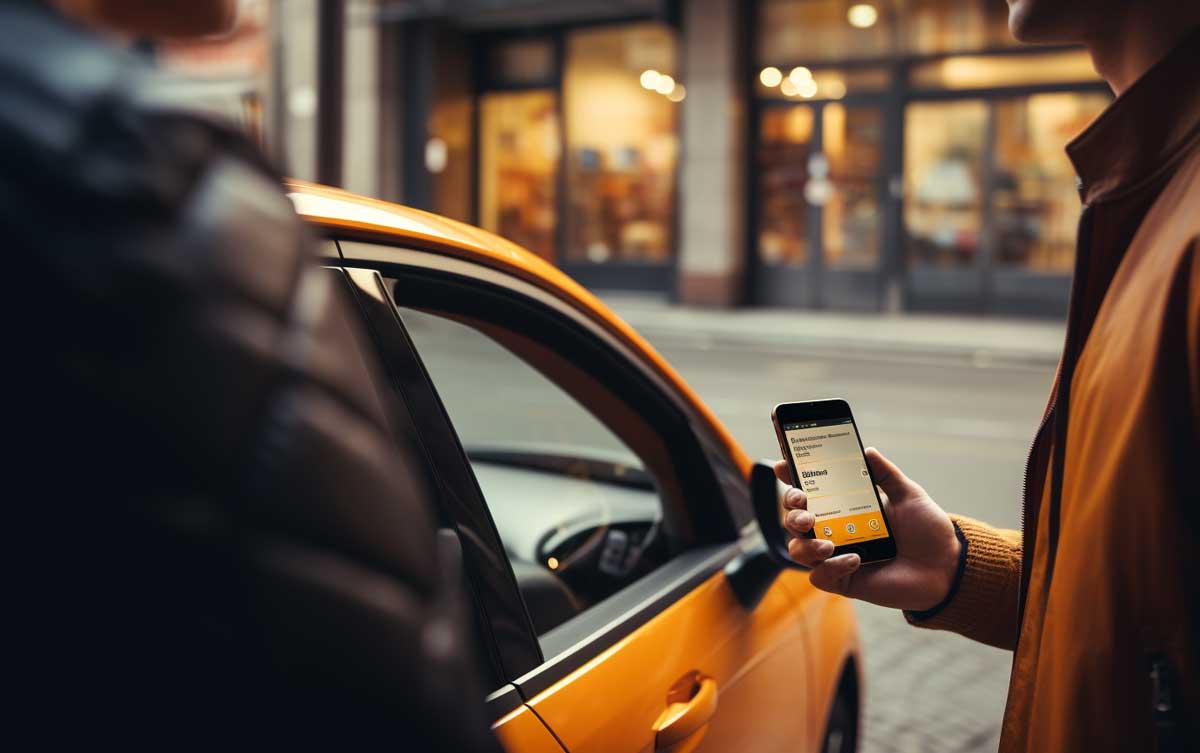In the age of the shared economy and car rental programs, where platforms like Airbnb, Uber, and DoorDash have revolutionized traditional industries, Turo has emerged as a leader in the peer-to-peer car rental space.
But as with any new platform that challenges the status quo, potential users often wonder: Is Turo safe? In this comprehensive guide, we’ll delve into the factors that affect the safety of your Turo experience.
Is Turo Safe?
Turo, often dubbed the "Airbnb for cars," is a peer-to-peer car rental platform that allows individual car owners to rent out their vehicles to others. For most customers, safety is their topmost priority in car rental programs, which begs the question: Is Turo safe?
When it comes to the question of safety, several aspects need to be considered:
-
Insurance and Liability: Turo provides different insurance plans through its partners that cover potential damages or accidents during the rental period. Renters and car owners can choose from a variety of protection plans, ranging from basic to premium, to suit their comfort level and needs.
-
Vehicle Standards: Before a car can be listed on Turo, it must meet specific safety standards. Turo requires vehicles to be in safe and reliable working condition, free from any major mechanical issues.
-
Renter Verification: Turo employs a verification process for renters, which includes checking driver's licenses and, in some cases, running background checks. This helps ensure that those renting the vehicles have a valid driving record.
-
Community Reviews and Ratings: Similar to other sharing economy platforms, Turo relies on community feedback. Renters and owners rate and review each other after every transaction, providing transparency and accountability. If a renter or vehicle doesn’t meet standards, their ratings will reflect that.
-
Digital Security: Turo uses advanced encryption techniques to protect users' personal and financial details, safeguarding against potential data breaches or cyber threats.
-
Communication Channels: The platform encourages open communication between renters and owners, offering in-app messaging services that maintain privacy while facilitating necessary discussions about rentals.
-
Emergency Support: Turo offers 24/7 roadside assistance and customer support, ensuring help is available in the event of unforeseen issues or emergencies.
While any peer-to-peer service carries inherent risks, Turo has implemented several measures to enhance safety and trust within its community. Both car owners and renters are advised to familiarize themselves with Turo's insurance policies, communicate openly, read reviews, and select appropriate insurance coverage to ensure a safe and positive experience.
Safety Measures for Vehicle Owners on Turo
For vehicle owners considering listing their car on Turo, safety is of paramount importance. Here are some measures they can take to ensure their vehicles are secure and the rental experience is as smooth as possible:
-
Understand Insurance Options: Before listing, familiarize yourself with Turo's various insurance protection plans. Ensure you choose a plan that offers ample coverage for potential damages, theft, or accidents during the rental period.
-
Regular Vehicle Maintenance: Make sure your vehicle is always in top condition. Regularly service it, check for any malfunctions, and ensure all safety equipment like airbags, brakes, and lights are working correctly. A well-maintained car reduces the risk of accidents or breakdowns.
-
Secure Personal Items: Before renting out your vehicle, remove all personal items and valuables. This not only safeguards your belongings but also ensures the renter doesn't mistakenly take something.
-
Renter Verification: Always review the profiles of potential renters. Check their reviews, ratings, and history on Turo. If a renter has multiple negative reviews or has been involved in incidents, it's okay to decline their request.
-
Clear Communication: Use Turo’s in-app messaging system to communicate any specific instructions about your vehicle. For instance, if your car has unique features or quirks, it's wise to let the renter know in advance.
-
Install a GPS Tracker: While it might seem a bit overboard, some owners choose to install GPS trackers in their vehicles. This allows them to monitor the car's location during the rental period. However, if you choose to do this, you should disclose it to the renter for privacy reasons.
-
Safe Exchange Points: When handing over your vehicle, choose public, well-lit locations. Some owners prefer to meet at the police station parking lots or other secure locations to ensure both parties' safety.
-
Document the Vehicle's Condition: Before each rental, take detailed photos of your car's interior and exterior. This will serve as a record of its condition and can be useful in case of disputes over damages.
-
Provide Safety Equipment: Consider keeping a first-aid kit, fire extinguisher, and spare tire in the vehicle. Not only is this a good safety practice, but it also shows renters that you prioritize their well-being.
-
Stay Updated with Turo Policies: Turo occasionally updates its terms of service, policies, and safety guidelines. Regularly check the platform for any changes and adjust your listing or practices accordingly.
While Turo provides various safeguards, vehicle owners should also be proactive in ensuring the safety and security of their cars. By implementing the above measures and fostering open communication with renters, owners can greatly enhance their Turo experience and ensure a safe, profitable venture.
Common Safety Issues in Car Rental Programs
Renting a car, whether from a traditional agency or a peer-to-peer platform like Turo, offers a lot of conveniences. However, there are potential safety issues that both renters and car owners should be aware of.
Here are some common safety concerns associated with car rental programs:
-
Vehicle Maintenance: Rental cars might not always be maintained at the same standard as a personally-owned vehicle. There's a risk of renting a car with worn-out tires, overdue oil changes, or other maintenance issues that could affect safety.
-
Unfamiliarity with the Vehicle: Renters might not be familiar with the specific model they're renting. This can lead to challenges like not knowing where the controls are, how the car handles, or how responsive it is, which can be a safety hazard, especially in emergency situations.
-
Lack of Personal Safety Equipment: Some personal safety items, like child car seats or booster seats, might not be readily available or might not meet the necessary safety standards.
-
Vehicle Hygiene and Cleanliness: Especially in times of health concerns like the COVID-19 pandemic, the cleanliness of rental cars becomes crucial. There's a risk of contamination if the vehicle isn't adequately cleaned and sanitized between rentals.
-
Undisclosed Vehicle Damage: Some car rental platforms or renters might not disclose minor damages to the vehicle, which could escalate into a safety concern when the car is on the road.
-
Lack of Proper Insurance: Not all rental platforms or agencies provide comprehensive insurance. Renters might find themselves inadequately covered in case of an accident or theft.
-
Data Privacy Concerns: Modern cars, especially those with advanced infotainment systems, might store personal data like phone contacts, navigation history, or even login details. Not clearing this data after a rental can lead to privacy issues.
-
Vehicle Theft: Rental cars can be targets for theft, especially if they're identifiable with rental company branding or if renters aren't diligent about locking them.
-
Fraudulent Listings or Scams: On peer-to-peer platforms, there's a risk of encountering fraudulent listings, where the vehicle doesn't match the description, or in extreme cases, doesn't even exist.
-
Inadequate Vehicle Handover: A rushed or incomplete handover process might leave renters uninformed about essential features or safety protocols for the vehicle.
Frequently Asked Questions
1. What safety measures does Turo have in place for renters?
Turo implements a comprehensive verification process for renters, including identity checks, to ensure that only legitimate users can rent vehicles on the platform.
2. How does Turo ensure the vehicles listed are safe to drive?
While Turo encourages vehicle owners to maintain their cars in top condition, it's essential for renters to inspect the vehicle upon pickup and report any concerns immediately to Turo's customer service.
3. Can I trust the reviews and ratings of vehicles and renters on Turo?
Yes, Turo's review and rating system is designed to reflect genuine user experiences. It helps build a community of trust where both owners and renters can make informed decisions based on previous interactions.
4. What should I do if I encounter an issue with a vehicle or a renter during my Turo experience?
Immediately contact Turo's customer support. They have protocols in place to address various concerns, ensuring the safety and satisfaction of their users.
5. Does Turo offer insurance to protect against potential damages or accidents?
Yes, Turo offers a range of protection plans tailored for both vehicle owners and renters. These plans provide varying degrees of coverage, ensuring peace of mind during the rental experience.
Conclusion
Navigating the world of car-sharing platforms brings its set of uncertainties, leading many to ask, "Is Turo safe?" The truth lies in Turo's proactive approach to ensuring user safety, combined with the due diligence of its community members. While Turo implements rigorous verification processes and provides insurance options, the onus is also on the users – both vehicle owners and renters – to exercise caution, inspect vehicles, and communicate transparently.
In essence, Turo provides the tools and protocols for a safe experience, but a collective effort ensures the highest standards of safety are met. After diving into the safety measures of car-sharing platforms, it's essential to ensure safety in all online services we use. Speaking of which, ever wondered, 'Is DoorDash Safe?' Let's explore the measures in place for a secure delivery experience.







